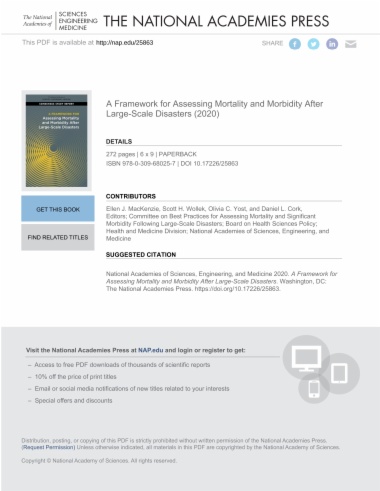

In the wake of a large-scale disaster, from the initial devastation through the long tail of recovery, protecting the health and well-being of the affected individuals and communities is paramount. Accurate and timely information about mortality and significant morbidity related to the disaster are the cornerstone of the efforts of the disaster management enterprise to save lives and prevent further health impacts. Conversely, failure to accurately capture mortality and significant morbidity data undercuts the nation's capacity to protect its population. Information about disaster-related mortality and significant morbidity adds value at all phases of the disaster management cycle. As a disaster unfolds, the data are crucial in guiding response and recovery priorities, ensuring a common operating picture and real-time situational awareness across stakeholders, and protecting vulnerable populations and settings at heightened risk.
A Framework for Assessing Mortality and Morbidity After Large-Scale Disasters reviews and describes the current state of the field of disaster-related mortality and significant morbidity assessment. This report examines practices and methods for data collection, recording, sharing, and use across state, local, tribal, and territorial stakeholders; evaluates best practices; and identifies areas for future resource investment.